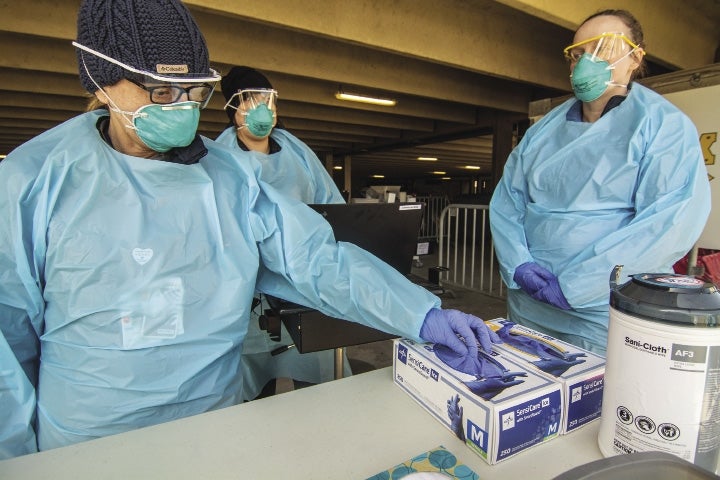The coronavirus pandemic is a turning point in history, impacting society for generations to come.
Get Instant Access to This Article
Subscribe to Worcester Business Journal and get immediate access to all of our subscriber-only content and much more.
- Critical Central Massachusetts business news updated daily.
- Immediate access to all subscriber-only content on our website.
- Bi-weekly print or digital editions of our award-winning publication.
- Special bonus issues like the WBJ Book of Lists.
- Exclusive ticket prize draws for our in-person events.
Click here to purchase a paywall bypass link for this article.
The coronavirus pandemic is a turning point in history, impacting society for generations to come. In many ways, the pandemic inspired innovation and showed the adaptive abilities of industries. However, the pandemic exacerbated pre-existing cracks in the healthcare system. Compounded by labor shortages, bed shortages, and increased demand, healthcare workers are facing challenges unlike anything they have ever encountered before. Here’s what will come in 2022.
Outpatient, office-based health care
The American healthcare system was already struggling with ways to balance affordability with accessibility to necessary coverage, but these cracks in the system only widened with the onslaught of the pandemic. Overburdened hospitals combined with labor shortages and hospital worker burnout are clogging hospital traffic; however, an emerging model of healthcare may offer some relief. Minimally invasive procedures can be safely performed by medical professionals in outpatient, office-based settings. This model is more convenient for patients, reduces hospital traffic, and is ultimately more affordable. The outpatient office model is becoming more popular in Massachusetts, especially during the pandemic when many patients are avoiding crowds and hospitals out of an abundance of caution.
Labor shortages & burnout crisis
Burnout has long been an obstacle for medical professionals and first responders. The long shifts, traumatic events, and adrenaline fatigue healthcare workers already faced on a daily basis further intensified during the pandemic. Subsequently, swarths of medical professionals are leaving the field. This is especially prevalent among Massachusetts’ EMS and paramedic retention. Low wages combined with overworked crews are causing an exodus among ambulance workers. Rural towns will be the most impacted since they are working with smaller budgets and will have to compete with larger cities for the diminishing pool of EMTs. The industry will need to internally address the mental health, labor, and financial needs of its workers or risk losing many.
Hospital bed shortages
Hospitals overrun with COVID patients in addition to regular hospital traffic are facing bed shortages, and that was before Saint Vincent Hospital closed 100 beds during its ongoing nurses strike. High demand and workforce shortages are adding to the strain of an already overtaxed industry. Subsequently, the mental health toll of lockdowns, pandemic fears, grief, and layoffs has resulted in an escalated need for behavioral health services. This industry is seeing a significant rise in patients needing mental health services, oftentimes on an emergency basis. Bed shortages in behavioral health mean patients in need of resources may be placed on lengthy waiting lists. The behavioral health sector will need to expand.

